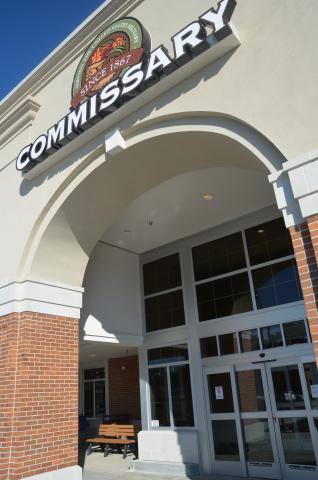152 years and counting: Military commissaries mark anniversary of benefit on July 1

FORT LEE, Va. – On July 1 the Defense Commissary Agency celebrates the 152nd anniversary of the commissary benefit, marking it as the oldest U.S. military resale program.
For patrons such as Army Command Sgt. Maj. Tomeka N. O’Neal, the benefit has helped service members and their families improve their quality of life by helping them save on the cost of groceries.
“Throughout my military career, the commissary has always been there to help me extend my paycheck and allow me to do more for my family,” said O’Neal, DeCA’s senior enlisted advisor to the agency director. “It’s a no-brainer that consistently shopping your commissary saves you money. So with the upcoming Fourth of July holiday, you’re smart if you use your benefit for extra savings on what you need to turn your unit function or family gathering into a special event.”
The modern day commissary benefit dates back to July 1, 1867, when enlisted men began receiving the same shopping privileges at subsistence department warehouses that had been available to officers since 1825.
More than a century and a half later, commissaries are still supporting military communities. Here’s how patrons today save money by using their benefit:
- Commissary brands. Commissaries offer high quality commissary store brand products that provide low cost alternatives for their patrons. This lineup consists of the following items: Freedom’s Choice for food items and HomeBase for nonfood items. Commissaries also carry other low cost alternatives such as TopCare for products such as first aid supplies, vitamins, over-the-counter medications and beauty care items; Tippy-Toes for baby and child care items; Full Circle Market for GMO-free, organic and natural products; and Flock’s Finest for wild bird food.
- Your Everyday Savings! Commissary prices on hundreds of popular items are even lower and easier to spot with the “YES!” program, a savings initiative to help make stateside commissaries more competitive with commercial grocers’ use of “loss leaders” by keeping prices low on items consumers tend to buy the most. YES! items include popular brands of flavored iced teas, pasta, macaroni and cheese, Spam, yogurt, cereal, oatmeal, baby food, nutritional shakes, potato chips and other selected snack foods, apple juice, vegetable juice, coffee creamer, coffee, energy drinks, soup, bananas, oranges, tomatoes, avocadoes, paper towels, toilet tissue, bottled water, dish soap, clothes detergent, fabric softener and pet food.
- Commissaries.com. Patrons who want to maximize their benefit are just a click away from a wealth of online information. They can register their Commissary Rewards Cards for access to digital coupons; check out the biweekly sales flyer for discounted products; find recipes by dish type, main ingredient or category, such as a “Holiday” recipe, “20-Minute Meal,” “Dietitian Approved” or “Thinking Outside the Box” recipes for quick, healthy and economical meal solutions; find their store based on location; order commissary gift cards; and learn more about the agency’s Nutrition Guide Program.
Be it state-of-the-art facilities or access to DeCA’s online features, today’s commissary benefit has evolved significantly over the past 150-plus years. Back in 1867, many of the early stores were set up in abandoned warehouses. Over time, these subsistence stores became sales commissaries, selling goods at cost and providing soldiers with groceries at reasonable prices.
In 1899, the first commissary to open overseas was an Army store in Cuba. Later, overseas commissaries followed in China in 1900, Panama in 1904 and France during World War I. By the time World War II ended, hundreds of U.S. military commissaries were operating all over the world. Eventually, each military service would control their own commissary operations.
In 1990, Congress and the Defense Department decided to consolidate the individual service commissary systems. With the formation of the Defense Commissary Agency on Oct. 1, 1991, all service commissaries – 411 stores in all – fell under DOD control.
Since 1867, U.S. commissaries have existed on every continent except Antarctica in more than 1,000 locations. Today DeCA continues to serve the military and its families at nearly 240 stores in 13 countries.
“Remember to use your commissary benefit because you’ve earned it,” O’Neal said. “Be sure to prepare for your July 4th barbecue and stock up on paper plates and cups, watermelon, quality meats, fresh corn on the cob and don’t forget the ice cream.”
-DeCA-
About DeCA: The Defense Commissary Agency operates a worldwide chain of commissaries providing groceries to military personnel, retirees and their families in a safe and secure shopping environment. Commissaries provide a military benefit, saving authorized patrons thousands of dollars annually on their purchases compared to similar products at commercial retailers. The discounted prices include a 5-percent surcharge, which covers the costs of building new commissaries and modernizing existing ones. A core military family support element, and a valued part of military pay and benefits, commissaries contribute to family readiness, enhance the quality of life for America’s military and their families, and help recruit and retain the best and brightest men and women to serve their country.
